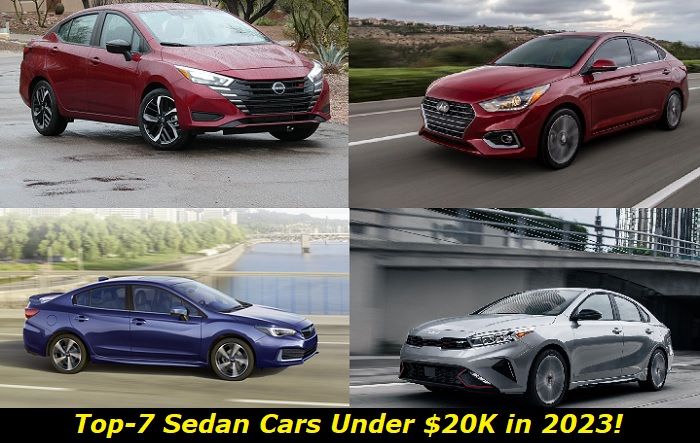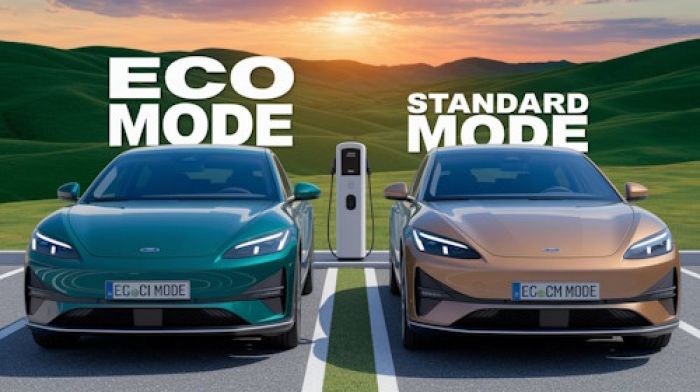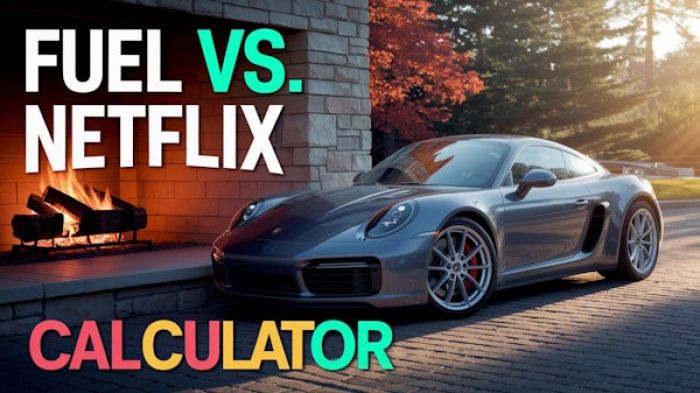The new Toyota Corolla is still one of the most popular compact vehicles in America. It's really modern in terms of design and technology, it's very comfortable and well-built. If you have ever owned a Toyota vehicle, you will choose exactly Corolla when having a choice among different brands of compact cars on the market. Why? Because Toyota equals quality.
Today, we'll be mostly speaking about the 1.8L engine which is the base powertrain for the 2022 Toyota Corolla. Want to know more about it? Read on and find out! We are going to give you a thorough overview of what the engine is and how it is going to work. We'll actually look at the nature of the engine and decide if it's a good choice for you.
.jpg)
Key features and my opinion about the engine
- Production years:2007-now
- Average lifespan of 2ZR-FAE:160,000-180,000 miles
- Fuel supply type:port injection
- Power range:140-150 hp
- Fuel efficiency:good
- Engine block material:aluminum
- Engine reliability score:medium
- The most common problems:bad oil consumption, water pump is awful, timing chain can stretch, throttle contamination, Valvematic problems, VVTi problems.
Some features of the Toyota Corolla 1.8L base engine
Most petrolheads are sure that the 1.8L engine that is currently available in Toyota Corolla vehicles is the 2ZR-FE model. But no, the American market got the new 2ZR-FAE engine instead of that legendary model. This means that the engine is more economical, has a better Valvematic system (variable valve timing from Toyota), and is overall more reliable than its predecessor.
But we should say that the 2023 model year doesn't have this engine listed. Instead, Toyota will offer a more powerful 2.0L engine for its base Corolla model and it's not that good. We love the 2ZR-FAE because it's just what the doctor ordered for people seeking to save some money and avoid extra costs for maintenance and repair. The 2-liter option doesn't seem that solid.
So, here are some facts you should know about the engine:
- this is not really a new engine as it was presented in 2007 and since then it has been upgraded several times;
- the engine offers 139 hp of power and 126 lb-ft of torque - that's not a lot but completely enough for the Corolla;
- the fuel economy stands at 30 mpg in the city and about 38 mpg on highways which is really great for a non-turbo and non-hybrid engine with decent displacement;
- this is a relatively simple 4-cylinder engine, the most complicated technologies are Valvematic and Dual VVT-i for valve management;
- the engine comes only with the CVT made by Toyota - it's not a bad transmission type but not as durable as the engine;
- the engine is great in both city traffic and highway, it's dynamic and economical in all kinds of driving;
- we can't say this engine is not problematic at all, but if we had to choose between the 2.0L from the SE trim and the base 1.8L, we would go for the base one.
Toyota isn't likely to hold its technologies in production for more than 5 or 7 years. But this engine has already survived over 15 years of production. This is one more important fact that proves the reliability and quality of the unit.
What we like in the 1.8L Corolla engine is its drivability. It's created for all types of road conditions. You drive in the city and you are comfortable with its RPM range and smoothness. You go to highways and you are still comfortable with its silence and optimal power.
The timing system is driven by the chain. The block and the head are made of aluminum and the weight of the whole engine is just 120 kilograms. But step by step, we come closer to some bad news you should know about.
What's the durability of the Toyota Corolla 1.8L engine?
When it comes to durability, this is not the best Toyota engine. This wonderful unit is made to save some fuel and to give you everything you can have from its 139 horsepower. But engineers weren't thinking much about the longevity of the engine. It can go approximately 160,000 miles until it needs expensive repairs or overhauling.
Given the block is aluminum, overhauling is very limited. You can have the rings and valve seals replaced. And that's all. If your block is damaged, there is little chance you can restore it. And the engine replacement will cost you a fortune. So, we can say the engine will liver 160K miles until it dies and needs replacement.
Also, the CVT lives approximately 130,000 miles (which is good for a CVT but bad for transmission overall). And this reduces the lifespan of the powerplant even more.
What are the common problems with the Toyota Corolla 1.8L engine?
The engine is not really problematic until it hits 150,000 miles. From this point on, the 1.8L engine is like a bomb and you never know when it's going to explode. And while all other parts of the Corolla are still good and can go another 100K miles, the engine and transmission start throwing problems at you and you have to juggle them somehow.
Here are the most common issues people have with this engine:
1. Oil consumption
The 2ZR-FAE engine starts taking some oil even when it's still young and reliable. Some owners reported minor oil consumption on high RPM at 30,000 miles. When the engine hits 100K miles, it's certainly consuming some oil and you need to pay attention to it.
Excessive oil consumption will clog the cat converter, and send some greasy deposits to the engine head. Also, a low level of oil in the block may lead to cylinder warps and rod-bearing failures. Never allow your 1.8L Toyota engine to run with low oil levels.
2. Timing chain issues
The timing chain seems like a good idea - it shouldn't be replaced like the belt. But the chain in this engine is most likely to be stretched at 100,000 miles. It means you will have to replace it. But the price for the replacement is really huge.
If the chain stretches and then jumps or breaks, you will have to repair the engine head. Valves will be destroyed because of the collision with pistons.
3. Coolant pump failure
Coolant pumps in these engines will not live long. The average lifespan is about 30,000 miles which is ridiculously little time. Replacing the pump is not as straightforward in these engines, so you will need to pay quite a lot.
Also, the pump may break unexpectedly when you are driving somewhere between the cities and don't have access to immediate diagnosis. This will mean that the engine may overheat which may result in its death.
4. Intake valves get some buildup
The Valvematic system causes some problems in the intake valves. They form some kind of buildup that consists of unburnt fuel and other fuel products. After some time, this may cause problems with engine stalling, bad idling, etc.
Also, this problem will affect gas mileage. So, cleaning intake valves and also the throttle body is one of the regular recommendations for these engines.
5. Valvematic and VVT-i problems
The valve control systems are pretty complicated and they keep glitching in these engines. Especially, if you have an older engine with high mileage. Of course, this will not happen in the 2022 Corolla, but after you drive your new car for three or four years, it will start getting on your nerves with all these valve-control systems.
Yes, they ensure better gas mileage when they work properly. But repairing them is a disaster for your budget.
What to do to prolong the lifespan of the 1.8L Corolla engine?
Now you know both advantages and flaws of the 1.8-liter 2ZR-FAE base engine in the Toyota Corolla. So, you may want to know what you should do to avoid problems in the future.
The best idea is to follow the original maintenance plan and avoid any problems that may reduce the life of your engine. Here are some of the most important recommendations:
- change oil and filters even more often than the manufacturer recommends;
- replace the timing belt with the water pump, tensioner, and other parts from the kit at 100,000 miles;
- replace the water pump every 30,000 miles;
- have the Valvematic and VVT-i systems diagnosed every 10,000 miles;
- only use high-quality oil, better buy Toyota original oil.
Final words
If you take care of this engine, it will give you over 150,000 miles of good driving. But if the 1.8L engine is not looked after, it's a disaster for your wallet. Parts are very expensive, even small breakdowns may lead to expensive repairs. Well, this is certainly not the engine for someone who forgets about the scheduled oil change.
If you are considering the new Toyota Corolla with the 1.8L engine, this is probably one of the best choices in terms of money and quality. But still, you should consider some disadvantages that come with this engine.
About the authors
The CarAraC research team is composed of seasoned auto mechanics and automotive industry professionals, including individuals with advanced degrees and certifications in their field. Our team members boast prestigious credentials, reflecting their extensive knowledge and skills. These qualifications include: IMI: Institute of the Motor Industry, ASE-Certified Master Automobile Technicians; Coventry University, Graduate of MA in Automotive Journalism; Politecnico di Torino, Italy, MS Automotive Engineering; Ss. Cyril and Methodius University in Skopje, Mechanical University in Skopje; TOC Automotive College; DHA Suffa University, Department of Mechanical Engineering






Add comment